Warren Haynes's top 5 tips for guitarists
PLUS 2015's Ashes & Dust album and a Gov't Mule update
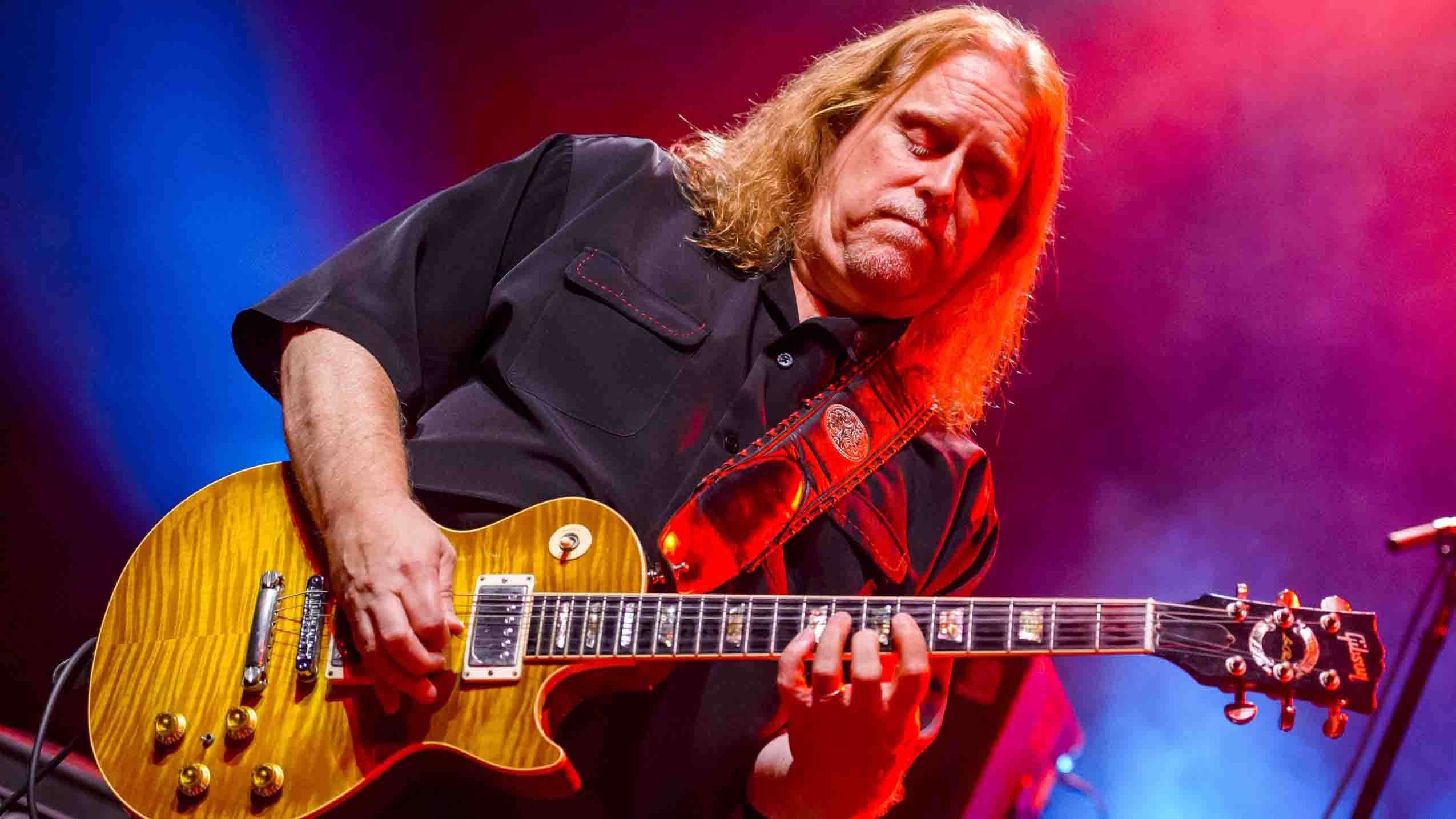
Introduction
Warren Haynes has long been one of the most celebrated and best-loved guitarists in blues-rock and beyond. As well as kicking out the jams with The Allman Brothers Band for 22 years and Gov’t Mule for the past two decades, Warren’s also regularly cut it loose live with The Dead (the remaining members of the Grateful Dead) since 2004 and released three stylistically versatile solo records.
Haynes’s latest album Ashes & Dust, which came out last year, took him into full-on Americana-flavoured territory, with his acoustic and slide playing taking centre stage. The record featured New Jersey roots band Railroad Earth, and Warren is rightfully very proud of the results.
“It’s a record that I wanted to make for a long, long time,” he tells us. “It’s such a departure from most of the stuff that people know from me but, you know, these are songs I’ve been writing all my life and - for whatever reason - it took 'til now for me to feel like the time was right to make it.”
So how did Haynes realise that “the time was right”?
“I guess I started really thinking it was the right time seven or eight years ago,” explains Warren.
“I was supposed to make this record with Levon Helm and Leon Russell and a bass player named T-Bone Wolk. Some of these songs would have been on that record, although interpreted a little bit differently, but then T-Bone passed away first and then Levon passed away and then that record just kind of disintegrated.
“So, at that point, I wasn’t exactly sure what to do, so I turned around and made Man In Motion [2011], which was my soul-music-meets-blues sort of record, because I’d accumulated a lot of songs in that direction as well… but I knew I would get back to some of these songs and continue to write songs like those.”
First, it was me with just one or two of the guys and then it was with three or four of the guys, and I thought, ‘Well, this might be a nice way to make this next record’
When Warren first hooked up with Railroad Earth, the musical chemistry was immediately there for all to hear and see.
“I’d known about [Railroad Earth] for a while and then they opened up for The Allman Brothers at Red Rocks in Colorado and I really enjoyed their set,” recalls Haynes.
“Then, we started playing together. First, it was me with just one or two of the guys and then it was with three or four of the guys, and I thought, ‘Well, this might be a nice way to make this next record.’
“We had a nice chemistry and they seemed to understand how to take the songs as they were written but also enhance them, helping to musically capture the story that the lyrics were telling. It ended up with the whole band in there working on the record with me.”
Haynes knew exactly how he wanted to approach the recording process.
I really liked the energy that you get from playing songs for the first time
“It was a very fun, organic process,” he explains. “We would go in the studio in the morning and I would show the guys a song that they had never heard before, we would work on an arrangement and then we would record it. Then, when we felt like we had a good version of it, we’d move to the next song which they had never heard before and then repeat that process.
“It was an interesting way to record. I talked to them about it in advance, because that’s the way I wanted to capture these songs. I wanted the music to be fresh. I really liked the energy that you get from playing songs for the first time.
“With that kind of music, it’s not technically challenging. It’s all about what you put into it and how you interpret it, and I think that rare thing that happens when you’re experiencing music for the first time is the best way to capture that sort of spirit.”
Before we move on to Haynes’s top 5 tips, we ask what fans can expect from the forthcoming Gov’t Mule UK dates in May.
“Well, they’ll all be different, and thankfully, we’re doing several UK shows this time as opposed to just one, which is something we’ve been working toward for quite a while,” says Warren.
“As most of our fans know, every show is different anyway, but I think - in the case of these three UK shows - it would be nice to make them completely different for whichever fans decide to come to two or three of them.
“We usually come up with a setlist the day before the show or something, and try to base it on what we’re expecting the audience to be like and the venue to be like but, once we get inside and start playing, it can sometimes change.
We keep a log of every show we’ve ever done and, when we go back to a certain town, then we make sure we play a completely different show than we did the last time
“We keep a log of every show we’ve ever done and, when we go back to a certain town, then we make sure we play a completely different show than we did the last time. Having not played a couple of these places, that would be pretty easy to do!”
And, lastly, is it true there’s a new Gov’t Mule album in the pipeline?
“We have some conceptual ideas,” explains Haynes. “We’re just talking about what kind of record we want to make. I have a couple of songs written that are very much departures from anything we’ve ever done but I have a feeling that the overall spirit of the new record will combine some directions we’ve never explored with directions going back to the very beginning of the band.”
Gov't Mule UK tour 2016
Thursday 12 May – Shepherds Bush Empire – London
Friday 13 May – O2 Academy – Bristol
Saturday 14 May – Picturedome – Holmfirth
Warren Haynes’s third solo album Ashes & Dust is available now.
Don't Miss
5 minutes alone: Warren Haynes
Warren Haynes talks Allman Brothers, John Scofield and new Gov't Mule releases
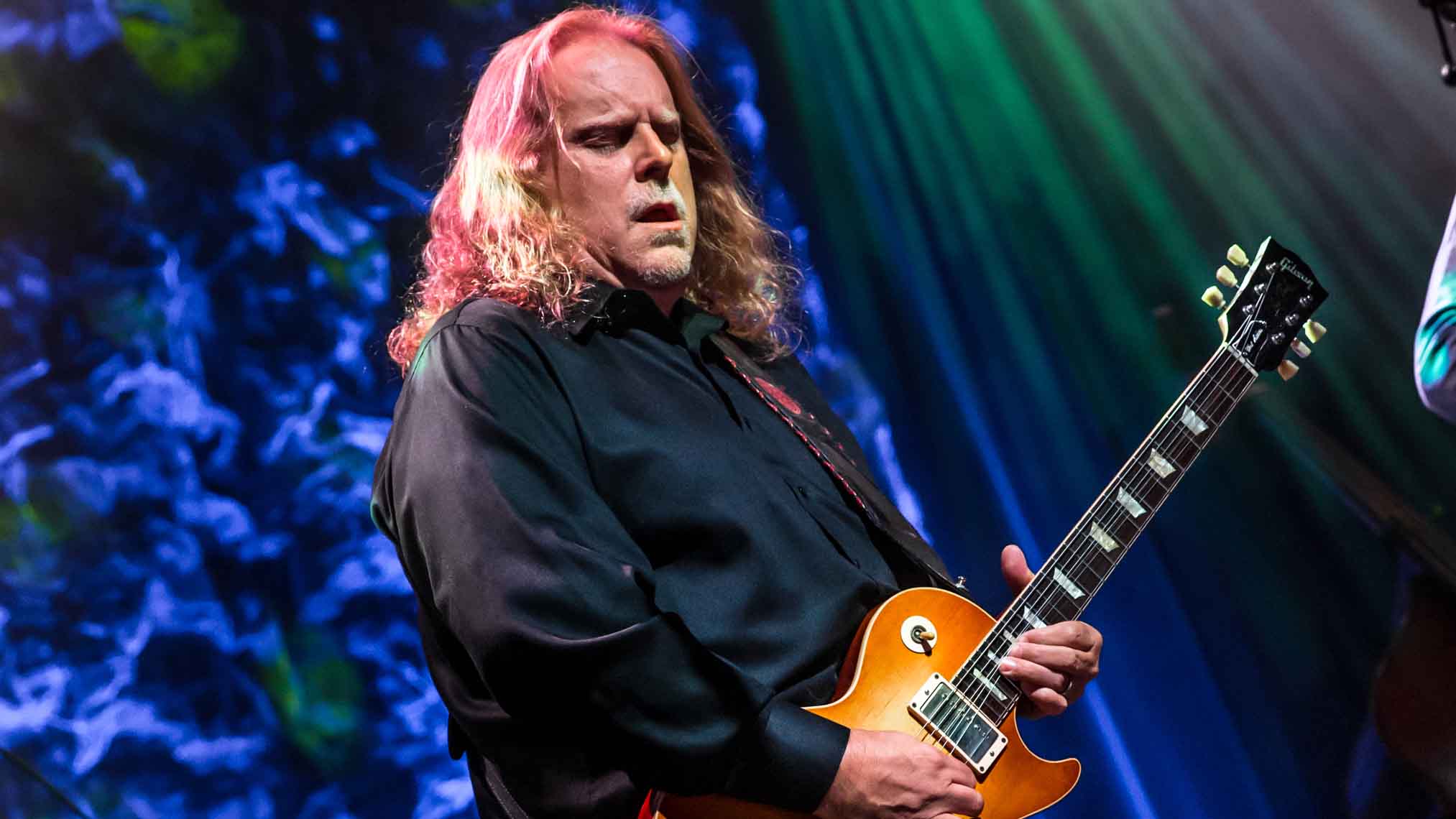
1. Listen to as much music as possible
“I would say number one is listen to as much music as possible, meaning as many different genres of music as possible. Try to discover the best in each genre. Don’t be picky or snobby about what types of music you listen to. It’s okay to be picky about the actual music, but there’s something to be learned from every genre, and the more music you study the more you’re probably going to find your own voice.
“Just listen to all the timeless stuff - the greatest blues guys, the greatest jazz musicians, the greatest acoustic players, bluegrass, reggae music. Every genre of music has giants, and you can start with them - there are people like Charlie Christian and Django Reinhardt and Wes Montgomery.
“For guitar players, those people have never been surpassed and there’s so much to learn from them, plus it helps you realise how far everything we listen to today goes back.”
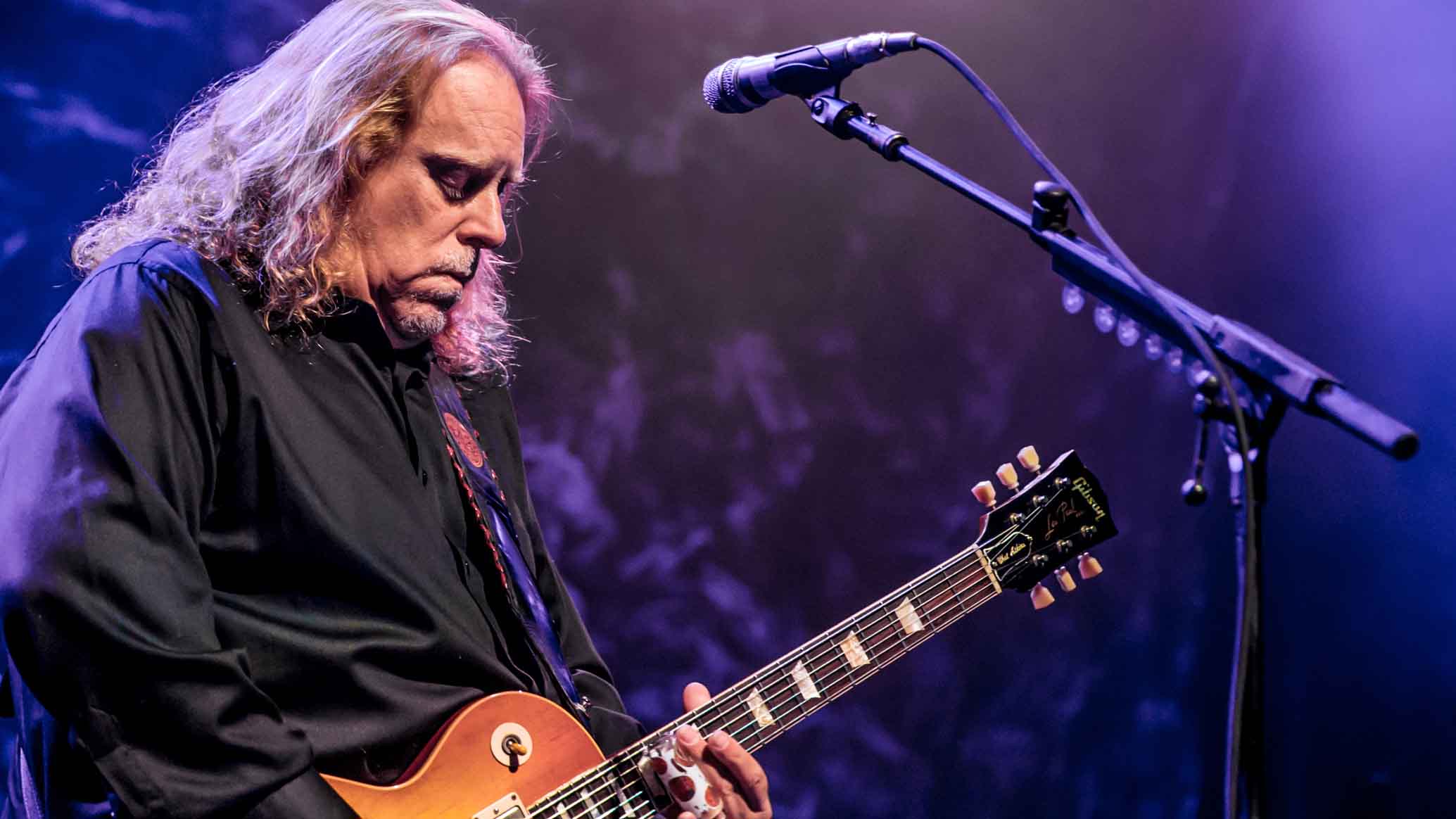
2. Every musician should sing and also try to play drums
“I think it’s important for every musician to play drums and to also sing, even if you don’t do it in public. It’s going to help improve your musicianship and your way of communicating with other musicians.
“I know when I got my first drum kit, it changed my perspective on music. I probably didn’t get a drum kit of my own 'til I was in my 20s but, in my early teens, we used to practice at my dad’s house; the drummer would leave his drums there, and that’s how I started playing. I realised, even from a songwriting perspective, how important it is to understand what the rhythm section is doing and to be able to communicate that to the people you’re working with.
“I started singing before I started playing guitar, so I’ve always gravitated towards musicians and guitar players in general who sounded like they were singing through their instruments. And, in a lot of cases, they’ll be musicians that are actual singers as well, like B.B. King and Ray Charles and Bonnie Raitt: people who are equally adept at their instruments as they are at singing.
“Also, since we’ve talked about drummers and singers as an influence on guitar-playing, I should say that I think the human voice is the greatest instrument of all. Every other instrument is trying to emulate it in some ways. If you study the great singers - the phrasing and the tone and the pitch and the choice of notes - that will all influence your guitar-playing.”
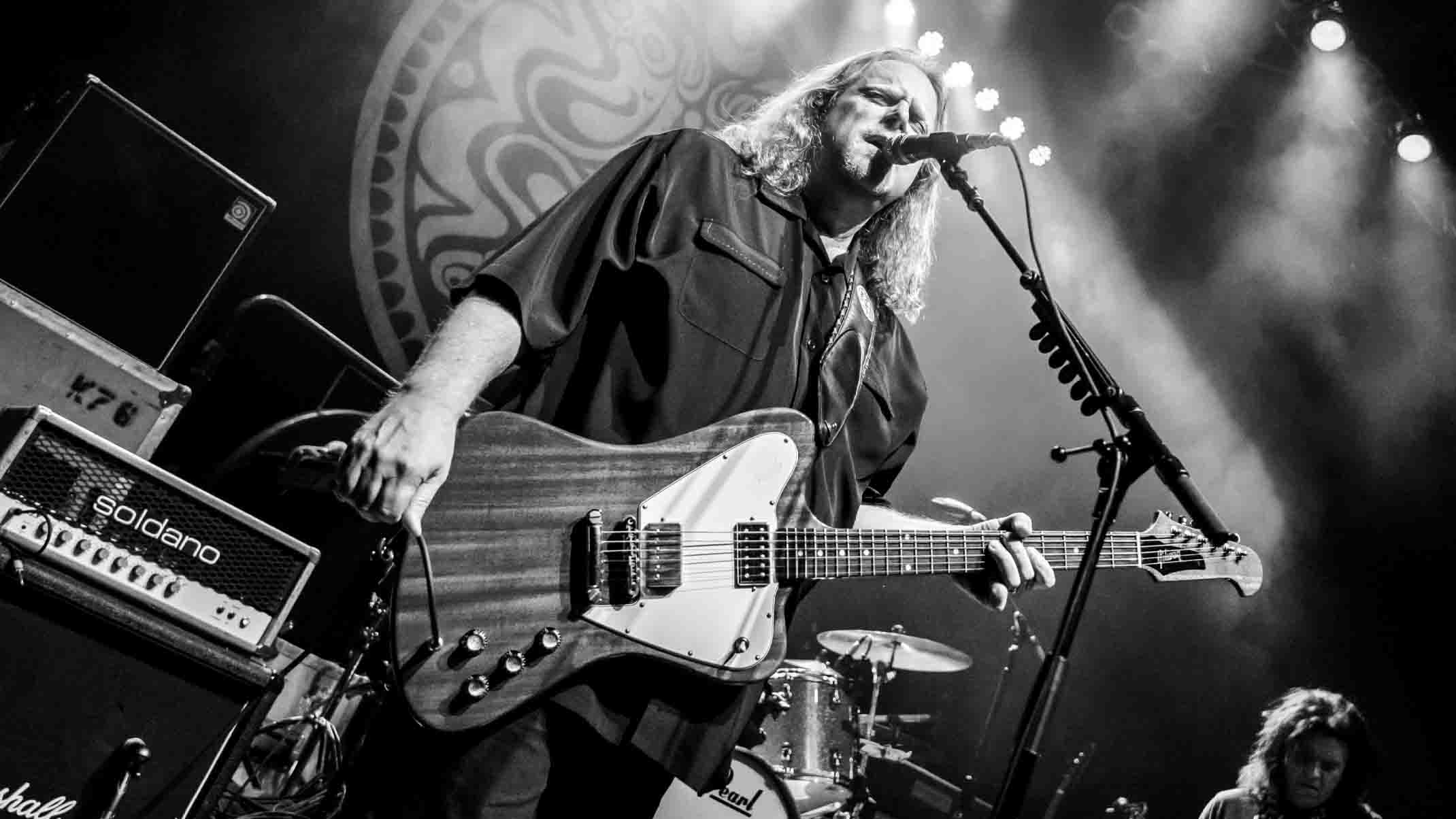
3. It's very important to listen to other instruments
“Listen to trumpet and listen to saxophone. One time, in an interview, someone was talking about my sound and they asked me what I was trying to achieve with my tone. I said I wanted it to sound like Sonny Rollins’ tenor saxophone.
“In a way, I was joking but, in a way, I was very serious. I want it to be very big, crisp on the top but with a lot of fat bottom-end and with every note sounding full and rich. So, a lot of times, I’m listening more to other instruments than I’m listening to guitar because I feel like the influence you get from another instrument can take you to places that you wouldn’t expect.
“That could be sax, trumpet or piano, but then it could be any instrument really, especially the human voice, which I mentioned earlier. If you think about it, slide guitar is emulating blues harmonica, and blues harmonica is emulating the human voice, so it all comes down to those great singers.”
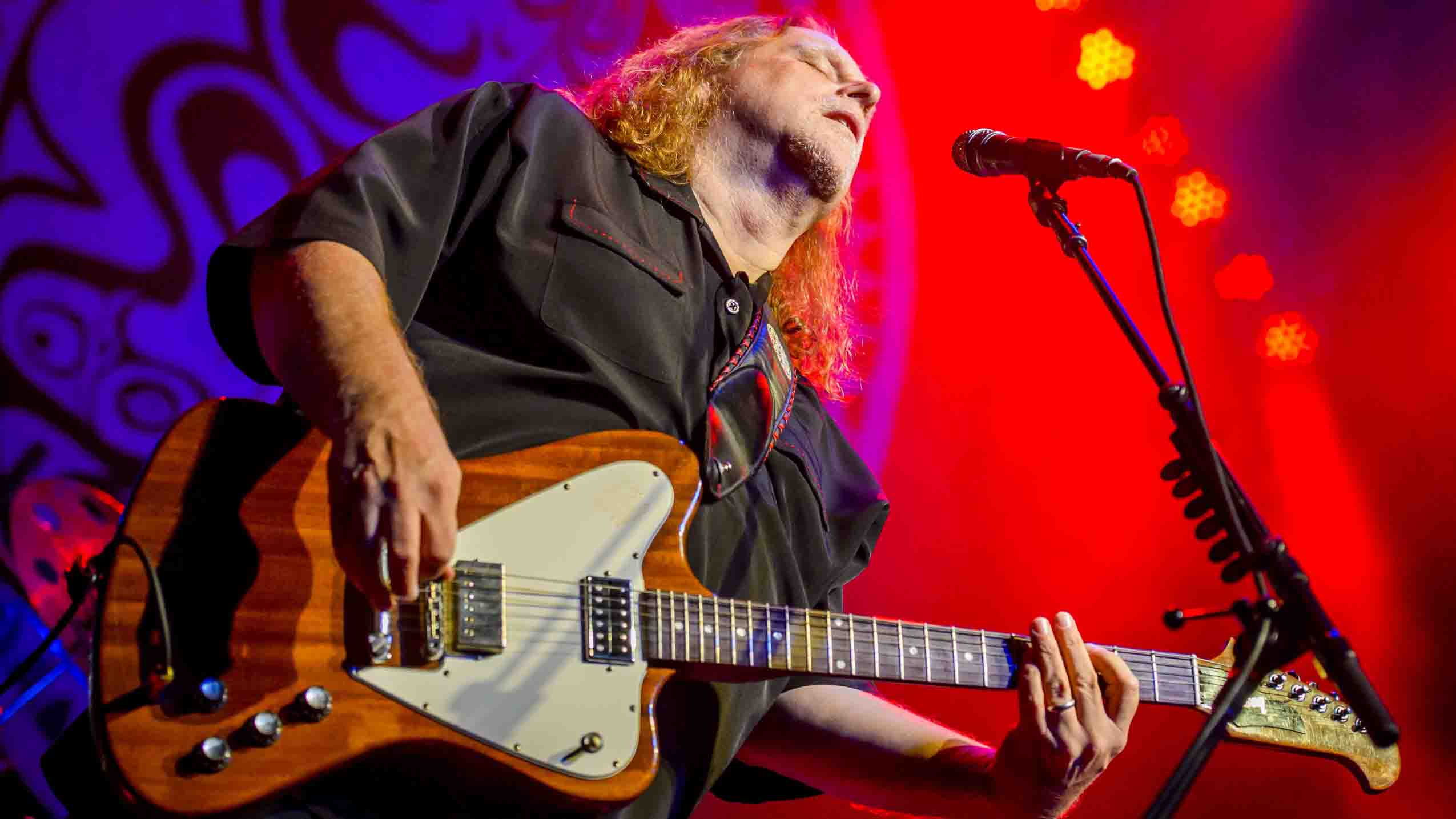
4. Surround yourself with as many musicians as you can
“I think it’s important to surround yourself with as many musicians as possible, and they should hopefully be on your level or better. I was very lucky when growing up because I was always the youngest person in every band I was in and that was the case up until I joined The Allman Brothers in 1989. I was always the youngest person, and that was good for me because the older musicians have experience that you can learn from and be influenced by.
“But, even more importantly, you should seek out and surround yourself with great players, because playing by yourself gives you only a fraction of the enlightenment and discovery you can get from playing with other musicians. Learning how to play with other instruments is really what it’s all about, and the sooner you can take on that challenge the better. There’s obviously an art to playing guitar in your bedroom, but it’s not nearly as multi-dimensional as it is to play with several other musicians.
“You can also learn from musicians that maybe, at first listen, aren’t as technically proficient as you think they are. Everyone has something to offer. A lot of the greatest songwriters aren’t necessarily the greatest musicians or even the greatest singers, but they’re taking their personalities and filtering them through their craft, and that’s really what it’s all about.”
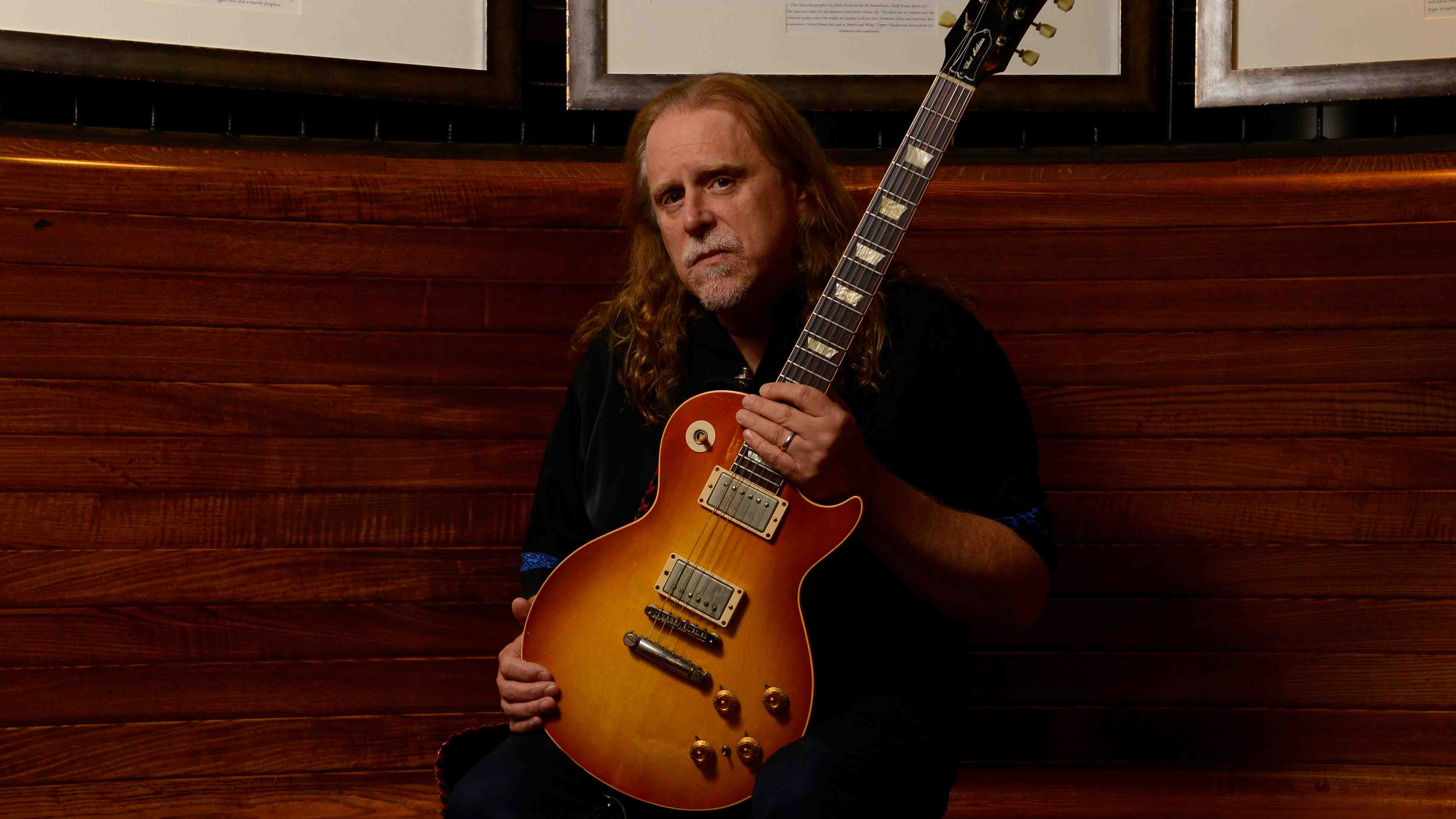
5. Don't let technique be your ultimate goal
“Don’t let technique be your ultimate goal and don’t let technique stand in your way of understanding and creating music that is more heartfelt and more palatable.
“Technique is great, and everyone has to study it at some point. Music theory is great. I studied music theory and I think it helped me tremendously, but the best music doesn’t come from a cerebral approach. It doesn’t come from thinking. It comes from feeling, and that’s something that only comes about with practice and with exposing yourself to as much music as possible and hopefully learning from each situation.
“You should try to discern what it is the artist is creating and offering us when you’re listening, and then try to figure out how to tap into that.”
Don't Miss
5 minutes alone: Warren Haynes
Warren Haynes talks Allman Brothers, John Scofield and new Gov't Mule releases